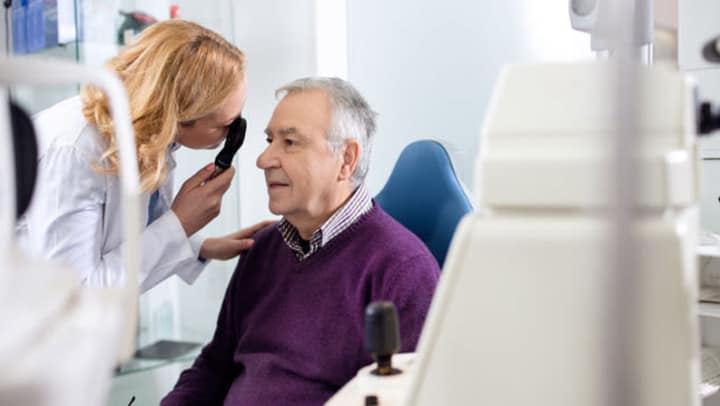
When someone you love has been diagnosed with dementia, your world changes very quickly. You want to learn as much as you can about the disease and make sure you are doing everything possible for your loved one to keep their levels of cognition as strong as possible, for as long as possible.
As hard as you are working to gather information together, you may actually be overlooking an important aspect of cognitive health: vision and hearing.
The Journal of American Medical Association “JAMA” recently issued the results of a study which sampled 3,000 older Americans and 30,000 Medicare beneficiaries. They found that poor vision was often associated with poor cognition.
The author of the study, Dr. Suzann Pershing, an ophthalmologist at Stanford University, was quoted in an article in the New York Times, as she helped clarify the results. “While this association doesn’t prove vision loss causes cognitive decline, intuitively it makes sense that the less engaged people are with the world, the less cognitive stimulation they receive, and the more likely their cognitive function will decline.”
Other studies point to the importance of hearing as it relates to cognition. Dr. Frank R. Lin, an otolaryngologist at The Johns Hopkins Center on Aging and Health found, in a study, that cognitive abilities declined up to 40% faster in those with hearing loss than those with normal hearing.
What do the results of these studies mean to your loved with dementia?
Vision and hearing are our most powerful senses. Making sure that your mom or dad’s vision and hearing are regularly checked is an important part of keeping them as alert to the world around them as possible. The American Academy of Ophthalmology recommends that seniors older than 64 receive an eye exam every year. The American Speech-Language Hearing Association recommends that those over age 50 have their hearing tested every three years.
We agree. At Anthem Memory Care communities, we take a holistic approach to care, recognizing the inter-connectedness of all aspects of heath. Regular check-ups, including sight and hearing, are essential to keeping our residents operating at their best possible cognitive levels.
When a loved one has been diagnosed with dementia, such as Alzheimer’s disease, it is easy to focus on the illness itself and overlook other, key aspects of their health. But it is important to remember that our vision and hearing are the two most important ways we connect with each other and with the world around us.
By making sure your loved one’s hearing and eyesight are as strong as possible, you will be giving them more ammunition in the battle to retain as much of their memory and cognitive abilities as possible!
Related Articles: